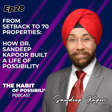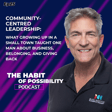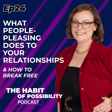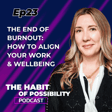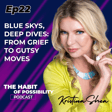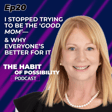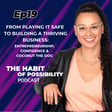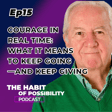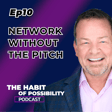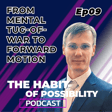
Why Bragging is a Leadership Skill (Not a Dirty Word)
Is bragging bad—or just misunderstood? Robbie Spier Miller talks with Lisa Bragg, author of Bragging Rights, about why self-promotion is actually a vital leadership skill. They explore how women, professionals, and small business owners can reframe “bragging” as a way to lead, serve, and grow. You’ll learn practical strategies for sharing your accomplishments without ego, and how hypnosis can help you overcome self-doubt, build confidence, and feel safe being seen. Whether you’re quiet by nature or stuck in perfectionism, this conversation will help you claim your voice and show up like a leader.
Lisa Bragg helps leaders and businesses gain the recognition they deserve in a world where talent alone isn’t enough. Too often, professionals assume their work will speak for itself, only to find themselves overlooked. A former broadcast journalist turned entrepreneur, Lisa has worked with Fortune 500 companies, global associations, and industry leaders to help them amplify their success and increase their influence.
She is the author of Bragging Rights: How to Talk About Your Work Using Purposeful Self-Promotion and a sought-after speaker across the U.S. and Canada. Lisa teaches people how to claim credit for their work and turn visibility into new opportunities.
You can connect with Lisa at https://www.lisabragg.com
We are getting many requests these days for help with managing stress and navigating all of the change happening around us. So, we are offering free Stress Management workshops, both in person at our training facility in Burlington, Ontario Canada, and online via Zoom. Learn more and register here: https://www.hypnosistrainingcanada.com/stress-management-workshop
Learn more about how Robbie Spier Miller’s coaching, training, consulting and speaking opportunities can help you enhance your personal and business performance here:
https://www.hypnosistrainingcanada.com
https://www.mindlinkconsulting.com
Social Media Handles:
@hypnosistrainingcanada
@robbiespiermiller

